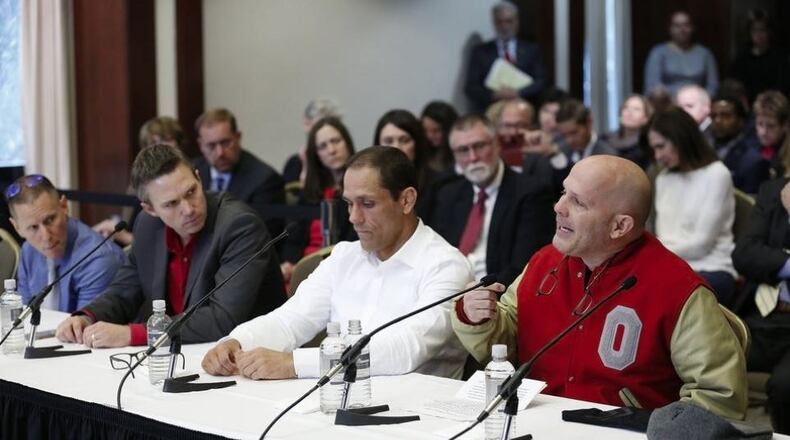“I have deep concerns that there could be other cases similar to this one. Cases where there was evidence of sexual misconduct and no action was taken. We don’t know that, but we need to find out,” the governor said.
RELATED: DeWine says end the statute of limitations on sex assault in wake of OSU case
Tessie Pollock, spokeswoman for the medical board, said the board welcomes the input from DeWine’s task force that reviewed the Strauss case.
“We value these recommendations and appreciate the time, perspective and expertise of the task force members. Medical board members and staff look forward to reviewing the report in depth and implementing changes that will make us an even stronger regulatory board, supporting our crucial mission of protecting the health and safety of patients in Ohio,” she said.
Last year, Ohio State University hired Perkins Coie, an outside law firm, to review allegations against Strauss. Perkins Coie reported in May that it found credible, firsthand accounts of abuse from 177 students but said that Strauss very likely abused others between 1979 and 1998 when he worked as a team doctor and a physician in the student health clinic. Investigators from Perkins Coie said that Ohio State administrators failed to take action despite repeated complaints about Strauss’ misconduct.
RELATED: State moves to lift confidentiality on Strauss report
Ohio State University did not refer Strauss to the medical board. Instead, Strauss filed a complaint against another physician and during that inquiry, the medical board opened an investigation into allegations he heard against Strauss, DeWine’s task force said.
DeWine also called for more transparency in medical board investigations, saying that confidentiality that lasts forever doesn’t serve the public. He also wants the medical board to examine whether any licensed physicians failed to report Strauss when they had reason to suspect he was sexually abusing patients.
The university is facing multiple lawsuits and the U.S. Department of Education’s office of civil rights is conducting an inquiry.
Strauss died by suicide in California in 2005.
Strauss showered with Ohio State University athletes, soaping himself while ogling them, and he performed lengthy genital examinations, even if a male student was being seen for a head cold or injured finger.
It was an open secret for 17 years.
According to the 232-page investigative report: 22 coaches, 18 student athletic trainers, and five team physicians across multiple sports confirmed they were aware of rumors or complaints about Strauss’ misconduct. At the Student Health Center, the director assigned “chaperones” to keep an eye on Strauss in the exam rooms.
In January 1996, Strauss fondled and abused “Student C,” who left the exam room shaken and told other patients in the Student Health Center to get out while they could. He insisted on filing a complaint against Strauss.
About the Author

